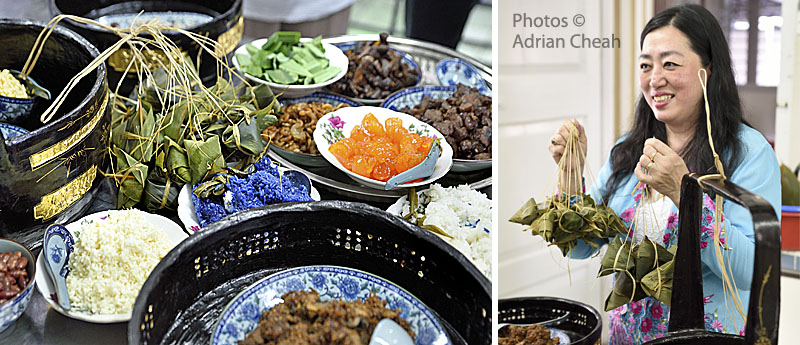Wrapped in Tradition – the Bak Chang Festival in Penang
Traditional Bak Chang, a steamed glutinous rice delicacy, is seasoned with dark soy sauce and wrapped in bamboo leaves. It features a filling of pork belly, shiitake mushrooms, dried prawns, salted egg yolk, and chestnuts, while some variations opt for just white beans and a slice of pork belly.
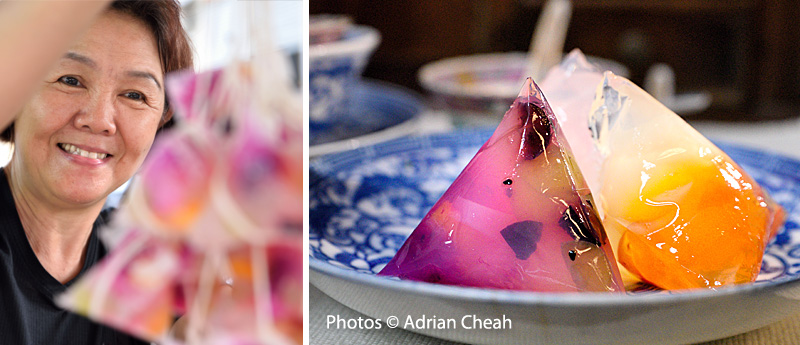
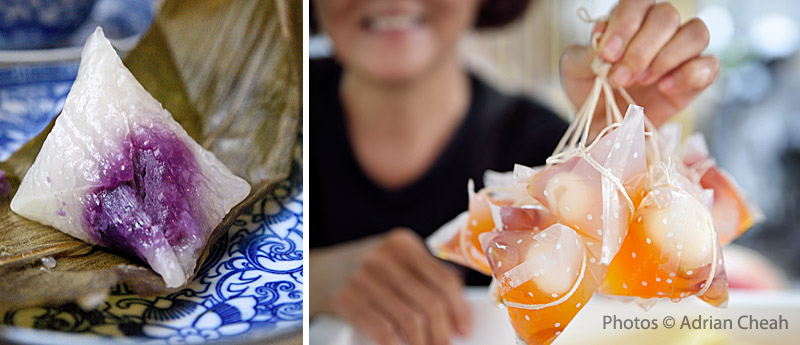
Today, Chang makers have showcased their creativity by introducing various alternatives, including vegetarian versions sans any meat and filled with different types of beans. Some even offer a sago version with sweet potato filling and a jelly option with cut fruits! For those seeking a more extravagant experience, there are versions with luxurious ingredients like abalone and scallops, albeit with a hefty price tag.
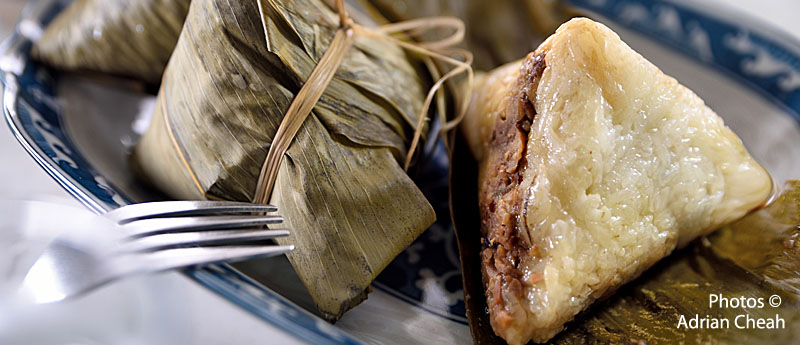
While traditionally enjoyed during the Bak Chang Festival, this rich and hearty treat is available year-round in Penang, a testament to its enduring popularity.
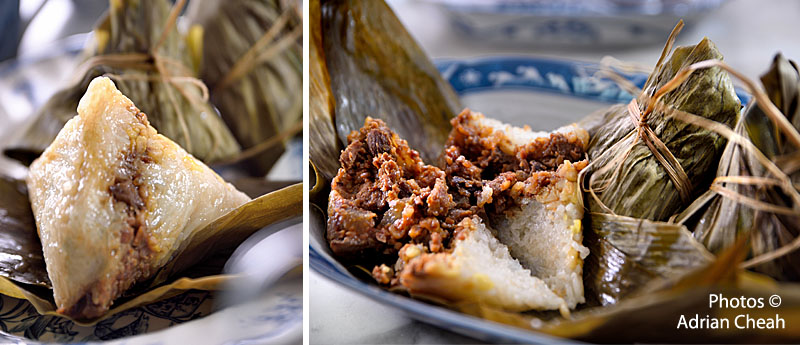
For the Nyonyas in Penang, they have their own version of Chang known as Pua Kiam Tee. While it also uses glutinous rice, the stuffing differs from the traditional Bak Chang. Soy sauce is not used, leaving the Chang a pristine white. Today, some add a natural blue coloring derived from rehydrating dried Bunga Telang (butterfly-pea flower), giving it a unique and appealing hue. This was not the case in the days of old in Penang.
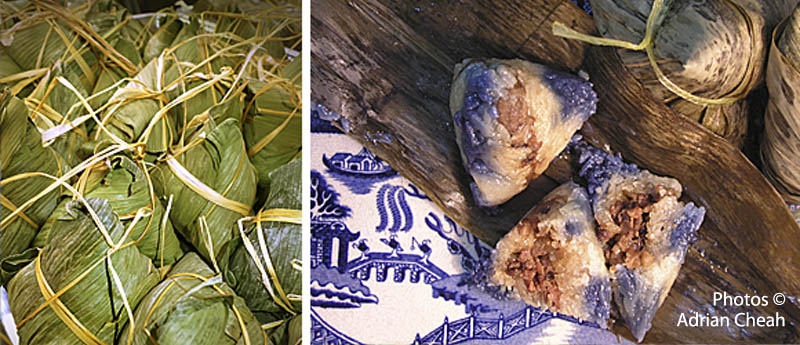
I have to confess that I am a big fan of these Nyonya-style dumplings, which strike a perfect balance between sweet and savoury elements. The inclusion of candied winter melon, aniseed and coriander imparts a strong, distinct flavour to these addictive dumplings. The wonderful scent from the pandan (screwpine) leaves also makes a significant difference, enhancing its aroma. The Nyonyas, known for their grace and elegance, craft their changs in modest sizes, just enough to sate the appetite but not to provide a hefty helping. Thus, one is never enough for me.
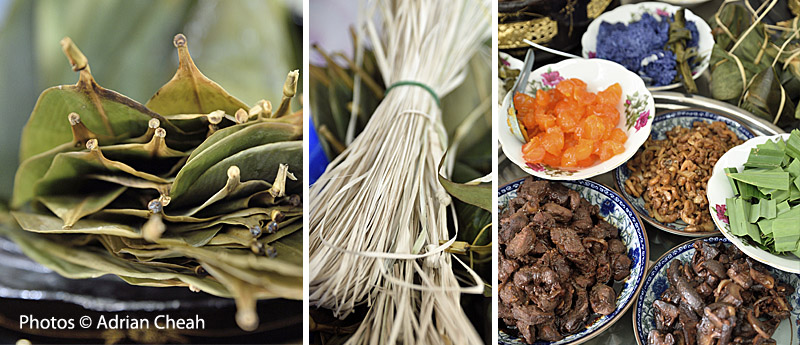
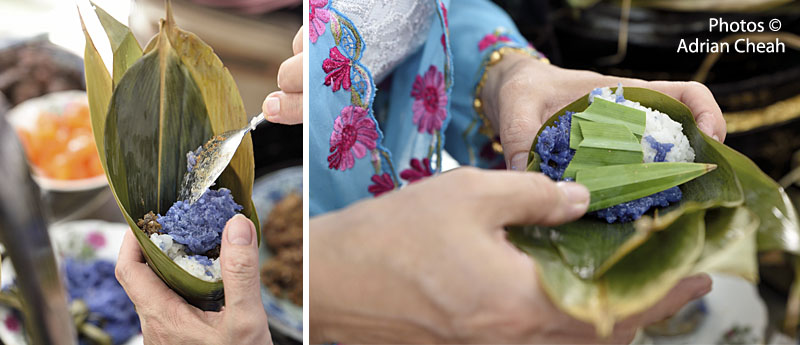
Usually, a week or so before the festival, the Chinese community in Penang begins the tradition of making and enjoying these bamboo leaf-wrapped dumplings. Crafting the dumplings takes skill, effort, and time. Even after all the meticulous preparation and wrapping, cooking the dumplings involves boiling them for at least two hours or more.
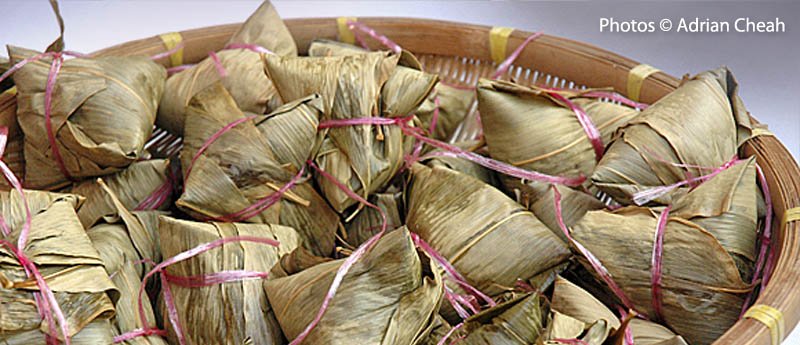
Having said that, most families who come together annually to craft Bak Chang for the festival thoroughly enjoy the entire process. I can still vividly recall from my youth when my Mum would prepare Bak Chang, and my brothers, sisters and I had an absolute blast stuffing our Changs with all our preferred ingredients. Once cooked, the dumplings are extracted from the boiling pot, suspended to rid them of excess water and permitted to cool to room temperature. Typically, our Chang would not retain its shape well because we had allowed very little room for the pulut that binds the dumplings. The excitement we felt unwrapping our Chang, bursting with our favourite fillings, was indescribable.
Cooked dumplings can be stored for up to a week in the refrigerator and for several months if frozen.
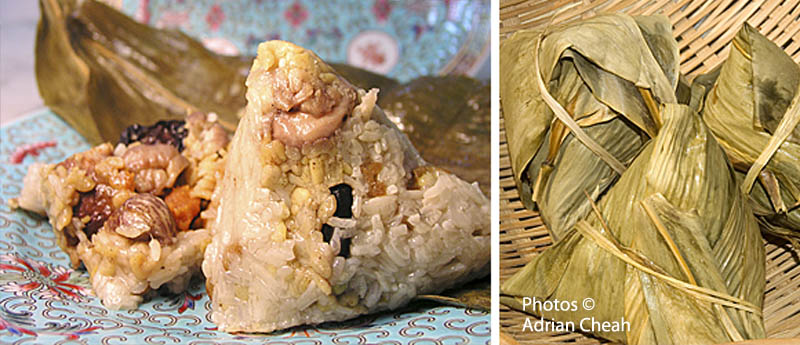
The tale behind the Bak Chang Festival
The fifth day of the fifth lunar month heralds the arrival of the Duanwu Festival, also known as the Dragon Boat Festival, celebrated by the Chinese community worldwide, including Penang. The festivities feature thrilling dragon boat races and the enjoyment of traditional rice dumplings. Much like other Chinese festival dishes, the Bak Chang Festival, too, is steeped in folklore.
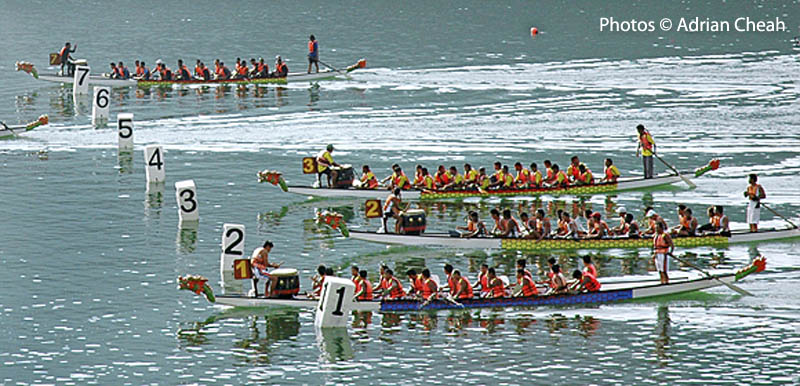
The narrative is rooted in the historical chronicles of Qu Yuan (340-278 BC), a pioneer poet of ancient China's Zhou Dynasty. As a scion of the Chu royal lineage, he faced exile from his esteemed position after opposing the king's decision to forge an alliance with the encroaching Qin state. During his period of exile, Qu Yuan penned some of the greatest poetry in Chinese literary history. Following the fall of the Chu capital to the Qin forces, Qu Yuan's anguish led him to enact a ritualistic suicide by drowning in the Miluo River, clutching a rock tied to himself. (The Miluo River is located in northeastern Hunan Province in present-day China.)
Witnessing the scene unfold, villagers sprang into action to rescue Qu Yuan. Racing across the river in boats, they drummed fervently and splashed water with their paddles to scare away the fishes. They also threw rice dumplings into the river so that the fishes would eat the rice dumplings and not Qu Yuan.

Despite their efforts, Qu Yuan could not be saved and his body was lost in the river. However, later that night, Qu Yuan's spirit was said to have appeared before his friends, advising them to drop rice dumplings into the river to ward off a river dragon. Following his instructions, his friends crafted rice dumplings wrapped in silk and cast them into the river.
This tragic legend is commemorated annually on the 5th day of the 5th lunar month with the Bak Chang Festival, honouring Qu Yuan's memory. Today in Penang, Bak Chang are not tossed into the river for the fish to consume, but are instead exchanged as gifts among family and friends to enjoy.
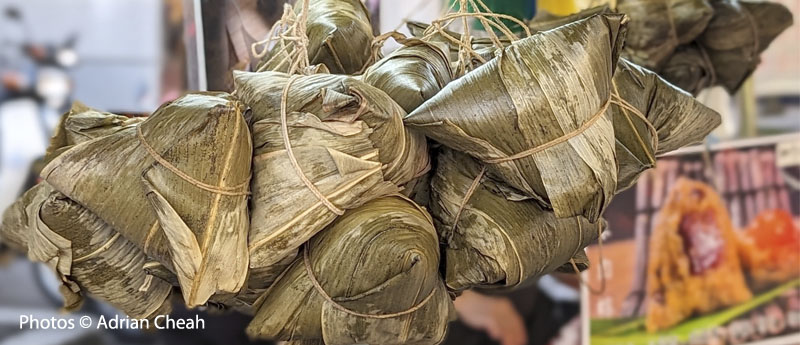
Bak Chang is readily available all over Penang, particularly at morning markets in the days leading up to the festival. However, they remain a popular snack for breakfast and tea throughout the year. One of my preferred Bak Chang stalls in Penang is situated at the curb in front of the Seventh Day Adventist Church, at the junction of Burmah Road and Tavoy Road. The vendor offers a diverse selection of Bak Chang, alongside Oh Kuih (yam cake) and Ang Tau Th'ng (red bean dessert).
The tradition of racing down the river in search of Qu Yuan's body gave rise to the Dragon Boat Festival, a revered event observed in many parts of China in homage to its ancient roots. Reflecting the heroic spirit of the legendary Qu Yuan, this tradition continues in Penang, marked by the resounding beat of drums and the roaring cheers of spectators celebrating human prowess. Despite the distance from its origins in China, this festival persist with great joy and festivity on this little island, connecting us to our shared heritage and bringing communities together in celebration.
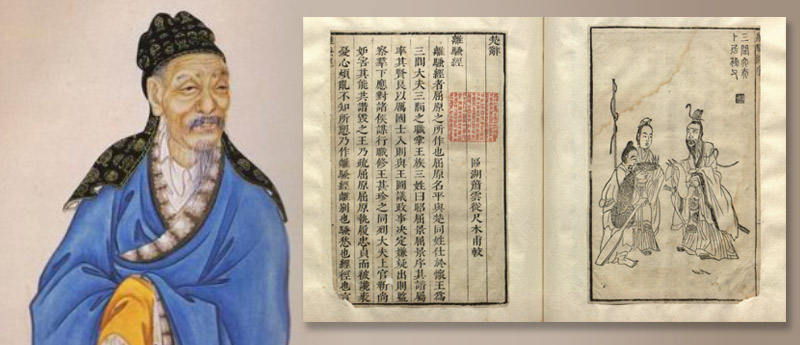
Portrait of Qü Yuan (source: public domain)
Here is a paragraph from "Li Sao" (The Lament), one of Qü Yuan's most remarkable works. It is believed to have been written during the period of the poet's exile by his king.
In sadness plunged and sunk in deepest gloom,
Alone I drove on to my dreary doom.
In exile rather would I meet my end,
Then to the baseness of their ways descend.
Remote the eagle spurns the common range,
Nor designs since time began its way to change;
A circle fits not with a square design;
Their different ways could not be merged with mine.
Yet still my heart I checked and curbed my pride,
Their blame endured and their reproach beside.
To die for righteousness alone I sought,
For this was what the ancient sages taught.
---------------------------------------------------------
Written and photographed by Adrian Cheah
© All rights reserved
Updated: 6 June 2024
